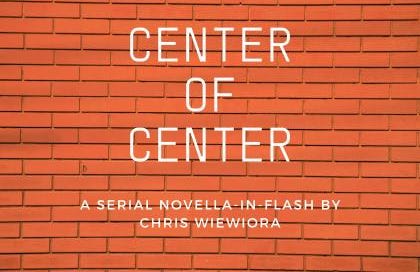What language is there for love? It isn’t Russian or Polish or English. Love is rescue. It’s not spoken, it’s done.
How are you doing? Lenny asks. He actually buckles one of the seatbelts on my mini-bus.
O.K., I say. Nothing great, nothing terrible. I won’t share my life with my passengers even if they divulge theirs.
I know that Lenny offers small samples of the bulky buys at Asterisk where I drop off Wiry Man. I know that Lenny believes it’s a deal to ride Torideo with his senior discount roundtrip to the Senior-Plex. I know this because Lenny tells me every week in case I’ve forgotten.
You’re not great? Lenny asks.
I’m fine, I say. The mini-bus is not a place to have a conversation. Maybe Lenny tells me the same thing about himself because he doesn’t know if I hear him. The wheelchair lift bounces and jostles in its steel frame.
Well, I’m great, Lenny says.
Great, I say.
See, that’s what I’m talking about. It’s easy. You can say it. You’re great.
Basha sloshed water on the floors of the Arts Building as Lake Mitten’s waves lapped at the seawall a block away. She mopped the creaking wood floors in the studios where working artists rented space to practice their craft. She heard the brush of oil on canvas, the bows pulled across strings, the toots pushed through wetted reeds, the clack of the alphabet on keys, the air vibrated against vocal chords, the shush of clay churning around wheels, the slide and tap of on-point along the floors; her floors that she cleaned.
All the artists stood on Basha’s floors. Her floors shined from the basement where a newspaper press used to run all the way to the top ballroom with a chandelier casting a brilliant glow. Her floors wafted an initial acrid, throat-burning bleach wash and then a rejuvenating tinge of lemon-scented water that evaporated into the air.





